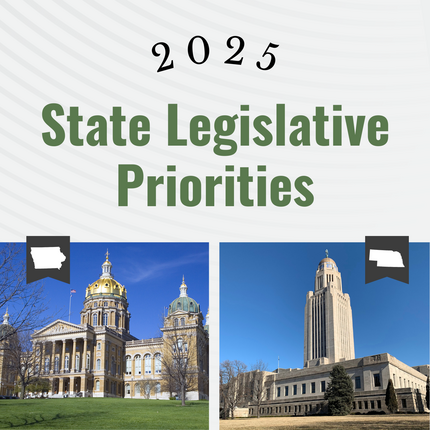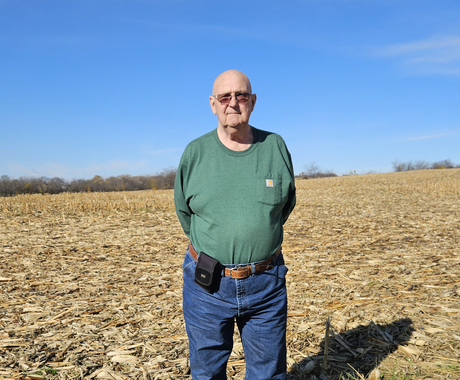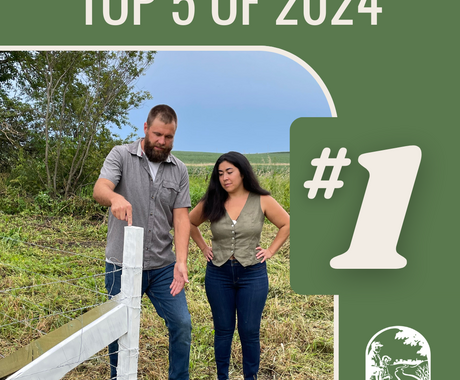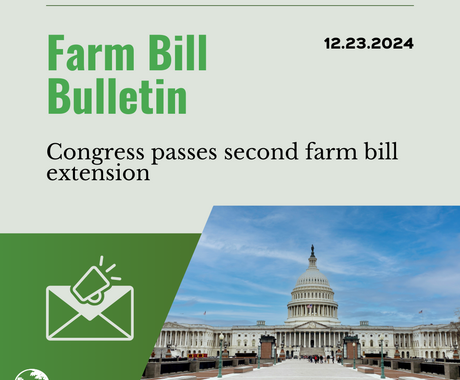Cynthia Farmer contributed to this piece.
Elected representatives in Nebraska and Iowa will debate a host of issues during the 2025 legislative session, including rural food access, budget and taxes, agriculture and conservation, energy and environment, and community well-being.
Relevant developments concerning priority legislation will be shared via email. Visit cfra.org/signup or email [email protected] to sign up for updates.
Nebraska
Community well-being
The Center will monitor and advocate for legislation promoting the expansion of services vital to Nebraska’s rural communities. We will support legislation to improve the availability, affordability, and accessibility of housing, health care, child care, and broadband—as well as access to healthy foods and clean water, with particular support for historically underserved populations. We will advance policies that create and support equitable and inclusive rural communities, including robust and transparent public participation processes for all rural residents. We will be actively involved in coalitions working to sustain Supplemental Nutrition Assistance Program (SNAP) access as well as expand support for immigrants, and we expect to work with legislators on improving water quality infrastructure and resources on Nebraska’s Native Nations.
Energy and environment
The Center will advocate for solutions that advance renewable generation and prioritize fair and balanced standards. We will actively defend against attempts to limit clean energy development and threats to public power, and we will continue to maintain a state table made up of advocates, organizations, and public power representatives supportive of clean energy development and action on climate change. The Center will closely monitor bills related to eminent domain and engage if a bill threatens to limit the siting of clean energy and electric transmission. We will support any efforts to expand net metering. We will also monitor legislative developments that seek to restrict energy development on farmland, offering alternative perspectives on how projects can complement agricultural operations through dual-use practices that offer both economic and environmental benefits.
Budget and taxes
The first session of the 109th Nebraska Legislature will convene on Jan. 8, 2025. The State of Nebraska develops a biennium budget, and 2025 is a budget-setting year. Through budget, appropriations, and tax policy debate, we will actively support policy that provides adequate funding for essential services and development in rural areas. With property tax reform still at the forefront, negotiations for program funding will be challenging. The Center will closely monitor legislation impacting Business Innovation Act programs, specifically the Microenterprise Assistance Program, which provides technical assistance or lending services for businesses with 10 or fewer employees.
Agriculture and conservation
Agriculture has been and will continue to be the largest industry in Nebraska. As such, the future of the state’s economy and its residents are highly dependent on healthy soil and water. We will monitor and support legislative policies related to soil health and water quality for agricultural production, environmental health, and rural life. We will also back local and statewide efforts on the ground and legislative efforts to support farmers and ranchers in the adoption of practices that protect and enhance these natural resources.
Nebraska & Iowa
Rural food access
Small independently owned grocery stores are a vital point of food access in rural communities. They provide access to healthy foods, serve as social hubs, offer employment opportunities for local residents, and drive economic growth. While our 2024 efforts to introduce legislation in both Nebraska and Iowa to provide financial support to rural grocers were not successful, both bills received overwhelmingly positive responses. Over the interim we have continued to work on the issue, completing an extensive study in Nebraska and collaborating with the grocery industry associations and other partners in both states on ways to reshape future efforts. In 2025, we plan to bring forward new legislation in each state that will provide tailored grant funding to support rural grocery stores in ways that will shape a sustainable future for these essential businesses.
Iowa
Budget and taxes
The Iowa Legislature considers budget and tax legislation on an annual basis. We will continue to advocate in favor of an established funding mechanism for the Natural Resources and Outdoor Recreation Trust Fund, also known as IWILL. We will educate Iowa decision makers about the potential of the Trust, which could include funding to support administration of the state’s Watershed Management Authorities (WMAs). A constitutional amendment was approved by Iowa voters in 2010 but has remained unfunded due to tax policy legislative inaction.
Community well-being
Seeing the success of the Choose Iowa Food Purchasing Pilot Program through the Iowa Department of Agriculture and Land Stewardship, we anticipate supporting a legislative effort to make the program permanent with additional funding. We also anticipate identifying and outlining the duties of Iowa’s Local Food and Farm Advisory Council and working on policies that will support improvements to the state’s farm to school program.
Agriculture and conservation
The Center continues to support programs and investments in Iowa that move the needle and empower farmers, landowners, and local leaders to be part of the solution. Reaching the state’s water goals continues to require an all-hands-on-deck approach. The Center will advocate for the continued effectiveness of WMAs, the Water Quality Initiative, and other efforts to advance water quality in Iowa. We will continue to support existing WMAs, help establish new ones, and promote policy solutions to ensure their resilience and efficacy.
Energy and environment
As the state navigates the growing demand for clean energy development, we will continue to advocate for solutions that inform local officials while maintaining local control. Last year, a state-level siting mandate had broad support from many renewable energy developers and environmental activists. However, we do not believe the Legislature should adopt state-level mandatory regulation, as it would undermine local control and remove the ability of rural residents to govern themselves. We will continue to support voluntary state-level siting guidance, a middle-ground approach that upholds local authority while still providing a reputable model for local decision makers.
What do you think?
Let us know your input on these priorities and tell us about other state issues that are important to you. Are you interested in writing a letter to your legislator or even testifying at the state capitol? Let us know.
For our Nebraska work, contact Carlie Jonas at [email protected] or 402.687.2100 ext. 1032.
For our Iowa work, contact Cynthia Farmer at [email protected] or 402.687.2100 ext. 1034.





